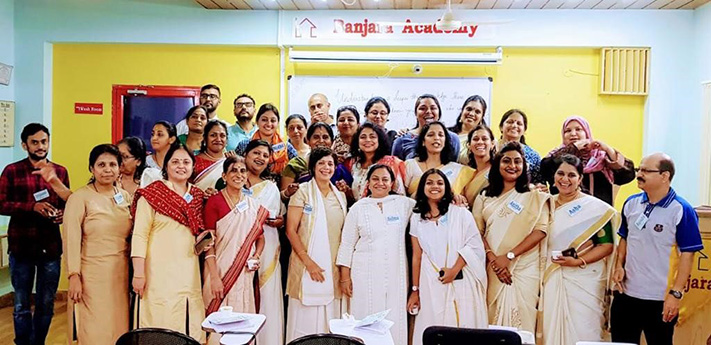Banjara Academy just happened, and its reach has grown over the decades. It currently touches more lives than it ever did before. The fact that the number of people benefitting from our association is ever increasing is what we would like to claim as our major achievement. The fact that we have made many people sit up and pay attention to many hitherto ignored or misunderstood issues involving human relationships, child upbringing, etc is what we regard as our foremost achievement.
Our efforts have been acknowledged by many organizations over the years. Our online short-term and long-term courses and classroom courses on counselling skills have been appreciated and recognized as very useful and at times indispensable in the understanding of human relations by many academic institutions, corporates, hospitals, etc. It has been very heartening to see that many of our students have been employed for their counselling skills in different organizations around the country, and the world. Here are just a few of them:
Rotary International, Kidwai Institute of Oncology, Institute of Human Resources Development, Bharatiya Vidya Bhavan, YMCA, Sudatta, Defence Institute of Quality Assurance, Navabharath Trust, the Indian Air Force, Acharya Patashala, Senior Citizen’s Clubs, various centres for disabled, most reputed universities and educational institutions have appreciated our services and have associated with us frequently in the conduct of our many programs. We would like to proudly and humbly acknowledge that some of the most prestigious institutions and organizations invite us frequently to conduct training, provide counseling, or train their trainers.
Banjara Academy wishes to be known as an institution with a heart. It is committed to improving the quality of life of the people it touches in its journey. We believe that every human being is unique, with immense untapped potential. Our mission is to open the doors for the flow of emotions, energy and release the potential. Do join us on this road less travelled.
We are playing, and we will continue to play, a role in helping human beings understand each other better, thereby helping improve interpersonal relationships. This significantly enriches lives through empowerment. It is our constant endeavor to help individuals build their self-esteem, again a very crucial element in improving the quality of life.
The doors of the Banjara Academy are – and will always remain open to individuals who seek guidance in child, adolescent, family, and inter-personal emotional issues. We consider ourselves blessed whenever we make a positive difference to the well-being of anyone who comes to us.
We not only provide free counselling to anyone who walks in, calls us, or writes to us, but also extend our services to nine public hospitals where patients and care givers need emotional support.
We believe that anyone can be trained in the vital fields of psychological counselling, life skills training and career guidance. Hence, we have constantly been endeavoring to train as many people as possible, so that the ripple effect reaches out to people at large. We have very convenient face-to-face part-time programs suiting people of all backgrounds and ages, and for those who cannot come and attend, we also have on-line programs.


